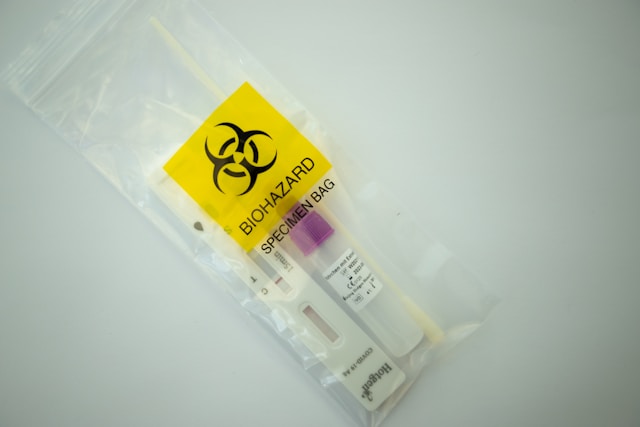What are the risks if biomedical waste is not managed properly? This is a critical question that every healthcare facility must ask, particularly in cities like Dallas, where the healthcare sector is expanding rapidly. As the population grows, so does the demand for efficient waste management systems. Yet, with this growth comes a slew of challenges that healthcare providers must navigate to ensure they meet regulatory standards while protecting both the environment and public health.
The Scope of Biomedical Waste Management in Dallas
Dallas boasts a robust healthcare sector, which naturally generates significant quantities of biomedical waste. This includes everything from used syringes to expired pharmaceuticals and contaminated materials. Managing this waste is no small feat, requiring meticulous processes, from proper segregation to safe disposal. Dallas is not only responding to this need but is at the forefront of exploring innovative methods to streamline these operations, reduce waste, and mitigate environmental impact.
The Role of Regulation in Shaping Waste Management Practices
Biomedical waste is heavily regulated to ensure public safety. In Dallas, these regulations are enforced by a combination of federal, state, and local agencies, including the Environmental Protection Agency (EPA) and the Texas Commission on Environmental Quality (TCEQ). These stringent regulations dictate how waste is categorized, handled, transported, and ultimately disposed of. For healthcare providers, compliance is not optional—it’s a legal requirement that carries severe penalties if ignored. Adapting to these evolving regulations requires ongoing education and significant investment.
Key Strategies for Effective Medical Waste Disposal in Dallas
As healthcare facilities look for ways to improve medical waste disposal in Dallas, they are turning to both innovative solutions and time-tested practices. Partnering with licensed waste management companies is crucial, as these firms bring expertise in navigating local regulations and ensuring proper disposal. Moreover, adopting technologies like real-time waste tracking systems enables healthcare providers to monitor their waste streams more efficiently, minimizing the risk of non-compliance.
Innovations Paving the Way for Sustainable Waste Management
The biomedical waste industry has seen a surge in technological advancements, particularly in the areas of waste minimization and sterilization. Techniques such as autoclaving, where waste is subjected to high-pressure steam to neutralize infectious agents, are gaining traction. Furthermore, Dallas has begun exploring the potential of pyrolysis—a process that converts waste into synthetic gas and ash—as a sustainable solution to minimize landfill use.

Challenges in Maintaining Compliance Amid Rapid Growth
One of the main challenges facing Dallas’ healthcare sector is the difficulty of maintaining compliance in the face of rapid expansion. New facilities are being constructed, existing ones are scaling up, and with this comes the increased generation of biomedical waste. While regulations remain strict, the challenge lies in ensuring that all healthcare providers, from small clinics to large hospitals, are on the same page regarding waste management practices. Compliance can be costly and time-consuming, which is why continuous education and support from waste management partners are essential.
Opportunities for Improving Waste Management Processes
While the challenges are significant, they also present opportunities. Dallas healthcare providers can benefit from adopting lean waste management principles that focus on waste reduction at the source. Additionally, developing waste management training programs for staff can go a long way in ensuring compliance and promoting a culture of sustainability within healthcare institutions. Opportunities also exist in enhancing collaboration between hospitals and waste management firms to develop more customized solutions.
The Environmental Impact of Poor Waste Management
Poor biomedical waste management doesn’t just affect healthcare providers; it has wide-reaching implications for public health and the environment. Improper disposal can result in the contamination of air, soil, and water, affecting entire communities. Moreover, hazardous waste that finds its way into the environment poses a risk to wildlife and can disrupt ecosystems. For Dallas, a city committed to sustainability, improving waste management practices is not just about regulatory compliance—it’s about protecting the environment for future generations.
The Financial Implications of Non-Compliance
For healthcare providers in Dallas, the financial risks of non-compliance with biomedical waste regulations are considerable. Fines and legal penalties are just the beginning. There are also hidden costs, such as damage to reputation, which can deter patients and partners. By investing in better waste management systems upfront, healthcare institutions can avoid these financial pitfalls, creating long-term savings and operational efficiency.
Leveraging Partnerships to Enhance Waste Management Efficiency
Successful biomedical waste management requires collaboration. In Dallas, healthcare facilities are increasingly working with specialized waste management companies to streamline their processes. These partnerships help healthcare providers stay ahead of regulatory changes while also benefiting from the latest innovations in waste disposal. By sharing best practices and pooling resources, these collaborations have the potential to elevate the entire healthcare sector’s approach to waste management.
The Road Ahead: Shaping the Future of Waste Management in Dallas
The future of biomedical waste management in Dallas hinges on the ability of healthcare providers and regulators to adapt to new technologies and practices. As regulations evolve, healthcare facilities will need to stay proactive in their waste management strategies. By focusing on sustainable practices and leveraging technological innovations, Dallas can set a benchmark for other cities in how to manage biomedical waste effectively and responsibly.
Conclusion
As Dallas continues to grow as a healthcare hub, the challenges surrounding biomedical waste management will only intensify. However, by embracing innovation, fostering partnerships, and maintaining compliance with stringent regulations, the city’s healthcare providers can turn these challenges into opportunities. Ensuring the safe disposal of biomedical waste is not just a regulatory necessity—it’s a moral imperative that protects public health and the environment. The future lies in sustainable, tech-driven solutions that align with Dallas’ commitment to both healthcare excellence and environmental responsibility.













Leave a Reply